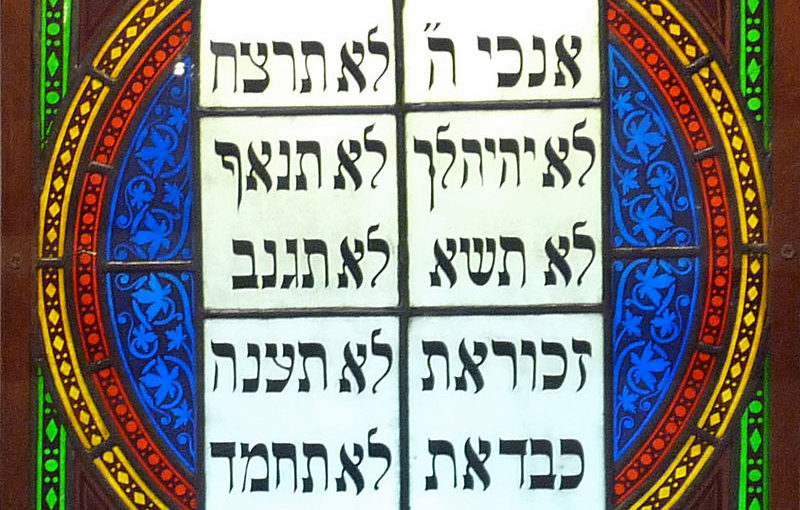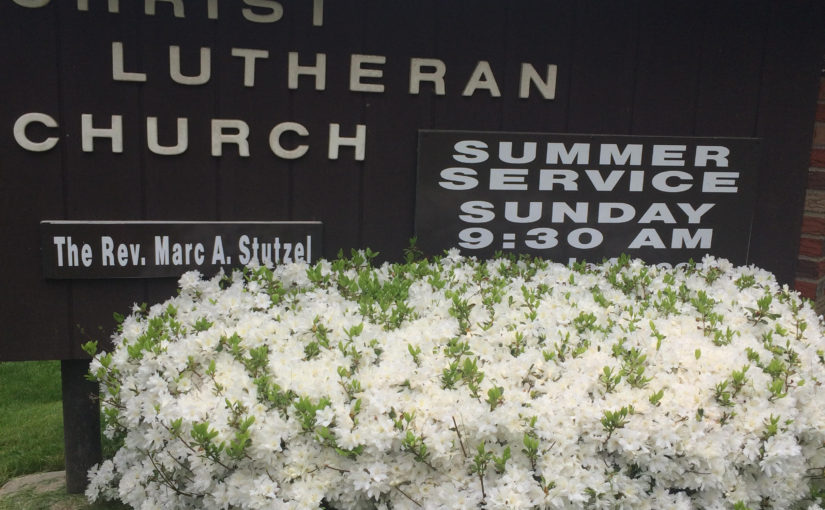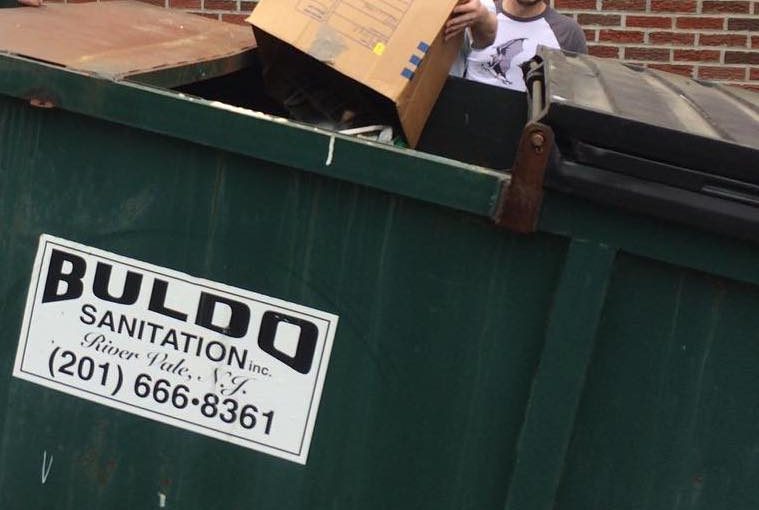“Do not let your hearts be troubled. Believe in God, believe also in me. In my Father’s house there are many dwelling places. If it were not so, would I have told you that I go to prepare a place for you? And if I go and prepare a place for you, I will come again and will take you to myself, so that where I am, there you may be also.
And you know the way to the place where I am going.” Thomas said to him, “Lord, we do not know where you are going. How can we know the way?” Jesus said to him, “I am the way, and the truth, and the life. No one comes to the Father except through me. If you know me, you will know my Father also. From now on you do know him and have seen him.” Philip said to him, “Lord, show us the Father, and we will be satisfied.” Jesus said to him, “Have I been with you all this time, Philip, and you still do not know me? Whoever has seen me has seen the Father. How can you say, ‘Show us the Father’? Do you not believe that I am in the Father and the Father is in me? The words that I say to you I do not speak on my own; but the Father who dwells in me does his works. Believe me that I am in the Father and the Father is in me; but if you do not, then believe me because of the works themselves.
Very truly, I tell you, the one who believes in me will also do the works that I do and, in fact, will do greater works than these, because I am going to the Father. I will do whatever you ask in my name, so that the Father may be glorified in the Son. If in my name you ask me for anything, I will do it.
John 14:1-14
My sermon from 5th Sunday of Easter (May 14, 2017) on John 14:1-14. Listen to the recording at the bottom of the page or read my manuscript below.
****************************
So which of Jesus’ amazing miracles – from feeding 5000 people with just a few loaves of bread to making a man born blind see – do you wish you could do? A few years ago, when I was an intern at a church in Manhattan, I was part of their altar guild. I was setting up the altar for communion before services one Sunday when the unexpected happened. We were out of wine. Jesus’ water to wine trick would have been handy that day. And later, I could have used his gift of healing when I sat at a hospital bedside, helping a family say goodbye to a loved one who was dying way too soon. There are plenty of times when I wish I had a smidget of that awesome Jesus-like power to make an immediate difference in the lives of the people around me. But…more often than not, that amazing moment of power, that awesome miracle, just doesn’t happen the way I wished it would. Which is why, I think, verse 12 in our reading from the gospel according to John can be…well…hard. Jesus says that the one who believes, will not only do what he did, but will do even more.
Now, Jesus in the gospel according to John, does a lot. He turns water into wine, heals a person who is paralyzed, he walks on water, and raises Lazarus from the dead. In total, there are 7 big signs that end up on Jesus’ resume. And when I compare Jesus’ resume to my own, I don’t really come close. One way out of this comparison problem is to remember that we’re human. We’re not the Son of God. We can’t compete or compare ourselves with Jesus, really. But…let’s not do that. Let’s take Jesus seriously. Let’s stand right in front of verse 12, being completely open about our own resumes filled with belief and doubt, struggle and selfishness, love and sin; let’s bring all of who we are – and stand before this word from our Lord who claims that if we truly believed in him, we could do more.
Standing there, alone before this verse from Jesus – it’s a bit uncomfortable, isn’t it? Because it seems like Jesus is giving us some kind of test that judges how much faith we actually have. If we can make a man born blind see, then we’re good. Our relationship with God is secure because a super power from Jesus showed up. Verse 12 feels like it gives us a way to quantify our relationship with Jesus, to see how much faith we have, and to show just how Christian we are to other people. And if walking on water isn’t showing up in our life as much as it should, then we might need to invent other signs, other signals, that show us how much God loves us. Our wealth; our power; our material blessings; our moral choices – we start to pretend that these are the signs that tell us if we’re with Jesus or not. It doesn’t take long before Jesus stops being Jesus, and instead he looks, and acts, and sounds an awfully lot like us. Faith stops being about knowing and trusting Jesus. Instead, faith becomes a strange attempt to chase after his supposed benefits – benefits that, in the end, are centered in greed, control, in being strong and being right, rather than in being generous, loving, vulnerable, and open.
In the race to compare ourselves to Jesus, we chase after what we think he can give us. We run without first listening to what Jesus actually said. And we forget that Jesus’ words are always spoken in context. Because when we are standing before his words in verse 12, we were not standing alone. We were surrounded by Jesus’ early disciples, by Philip and Thomas and Peter and others, and everyone is scared. Everyone is confused. When we stop for a moment and keep Jesus’ words firmly planted in his story, we hear Jesus talking today to his disciples right before his arrest and trial. Everyone is in one large room, having a meal. And in the middle of this dinner, Jesus gets up and does something weird. He stops being their teacher, being the one who is supposed to be served, and instead he serves others by washing their feet. Even Judas, the one who betrays him, gets his feet washed. After the washing, Judas flees into the night, to arrange for Jesus’ arrest, while Jesus keeps talking. He mentions his impending death. He shares who will leave him. And he promises that when push comes to shove and people want to know if these followers of Jesus know him or not, even Peter, one of his most committed disciples, will deny knowing him. The disciples are confused and scared. Jesus is telling them, that is just a few short days, their faith will fail.
These disciples, on any normal scale of what it means to be faithful believers and true disciples of Jesus Christ, are totally going to blow it once Good Friday comes. Jesus, in this passage, isn’t telling them how they can measure or judge their faith. He isn’t giving them a list of statements of belief that are the end-all-be-all of what it means to be a true believer. None of the verses today can be considered litmus tests that we can use to test whether someone is a true follower of Jesus or not. Because that kind of list, those kinds of ideas, won’t help the disciples live through what’s about to come. Every word in today’s reading is a promise – a promise that even when they can’t see him, even when Jesus feels far away, even when Good Friday and death itself comes, none of that can break the relationship Jesus has formed with each of them. Not even their own fear or doubt, not even their denial or their running away, can overcome Jesus’ love for them. Jesus promises to be with them, to keep coming to them over and over again, even when it looks like evil has won and God has lost. Even when all hope is gone, Jesus isn’t. And that relationship Jesus has with each of us – that Jesus has with this entire world – in the end, means everything.
So, if today’s text from John is about a promise Jesus makes to us, then what could possibly be that greater work Jesus promises? Jesus’ super power isn’t focused on the supernatural acts that we call miracles. Jesus’ power is the relationship he forms with each of us. It’s how even with our resumes full of all the ways we act like God and try to make our opinion or likes or wants be the only ones that matter, even then Jesus keeps coming to us over and over again. It’s through relationship, when our faith grows. It’s through the time and energy we put in with Jesus to struggle and argue, to ask questions and wonder, to shed tears of joy and of sadness with him – it’s when we dwell with him, abide with him, when we discover exactly who we are and who God imagines us to be. The greatest work we can offer to our family and friends, to our neighbors and strangers, is simply to show them our relationship with this Son of God who never gives up on us even when we give up on ourselves. And that relationship is refined, maintained, and strengthened when we live our faith out loud together, in a community that isn’t perfect but one that clings, through all things, to this Jesus who shows us just who God is, and just how far God will go for us.
Amen.
Podcast: Play in new window | Download




